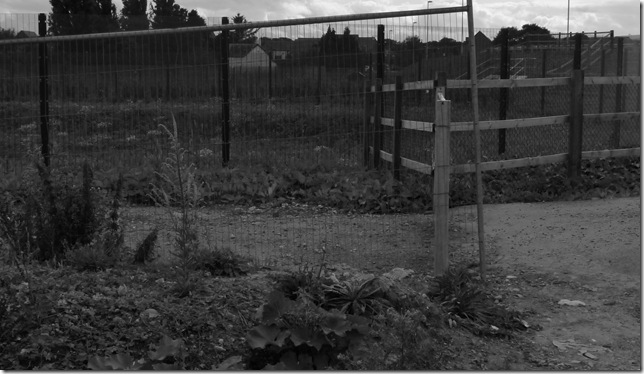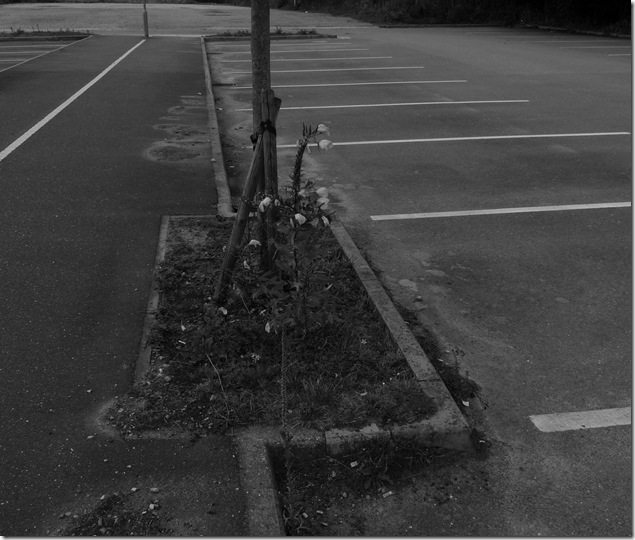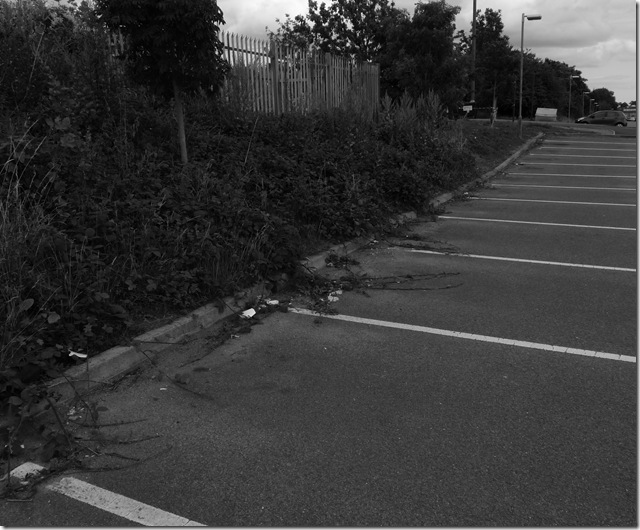Walking through an unfamiliar ribbon of land behind my local hospital, looking for an old footpath marked on the OS map, I was reminded of a short poem by William Carlos Williams. Williams writes of happening upon a liminal space behind the hospital where he worked as a physician. One of the those strange spaces, a place between other places, unheralded, barely acknowledged, and yet a familiar part of everyday life in all industrial and post-industrial societies. Decades after he wrote them, Williams’ words still resonate with me:
the back wings
of thehospital where
nothingwill grow lie
cindersIn which shine
the brokenpieces of a green
bottle
Williams’ space is confined; it is “between walls”. It is all but ignored too, being at the ”back wings” of the hospital. We are all familiar with these waste spaces behind public buildings. The one I walked through had its share of broken glass too, evidence perhaps of this being a favourite spot for joyless al fresco drinking by the young, and not so young.
I avoided the obvious and overly literal cliché of a picture of broken glass to illustrate this piece. But the symbolism of the broken bottle is interesting: highlighting, perhaps, the “brokenness” of post-industrial landscapes. Whilst, at the same time, the fact that the bottle is green, suggests there is always a potential for new growth even in these unloved spaces.
Taking this duality a step further, the fact that Williams sets his poem in the grounds of a hospital is significant. Hospitals are, of course, places of sickness and death, but they can also represent healing and renewal.
The footpath I was looking for followed the course of an old railway, long since abandoned and the map suggested that this whole area behind the hospital was once farmland. Now it is a hastily designated overspill car-park. A feeling of impermanence and fluidity pervades; at one end this ribbon of land insinuates itself into the outer edges of a supermarket car-park, whilst at the other the bed of the old railway track suddenly emerges from a carpet of crumbling asphalt.
Not so long ago this area was an unofficial Traveller encampment, frowned upon by the local authority and grumbled about by local residents. The Travellers were eventually forcibly evicted and decanted onto a bleak concrete reservation just off the by-pass at the edge of town. The liminal, unused space where they once made their homes now houses those cars that arrive too late to find a space nearer the hospital.
At its conclusion, Williams’ poem is life-affirming: green jewels amongst the dust and cinders. Ultimately, it seems to me, all of these unloved liminal spaces, like the one behind my local hospital, have an integrity and a beauty of their own. Which is perhaps why I find myself drawn to them.
Between Walls – William Carlos Williams
Other Words and Images – Bobby Seal



